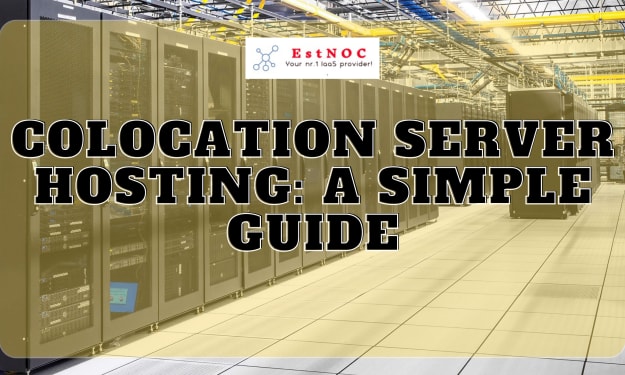
In today's digital landscape, where businesses and individuals heavily rely on the internet for various purposes, web hosting plays a crucial role in ensuring a reliable online presence. Among the many hosting options available, Virtual Private Servers (VPS) have gained significant popularity. This article aims to demystify the concept of VPS and shed light on its benefits and applications in the modern web hosting industry.
A Virtual Private Server (VPS) is a type of web hosting service that utilizes virtualization technology to partition a physical server into multiple isolated virtual environments. Each Virtual Private Server (VPS)acts as an independent server, providing users with dedicated resources and full control over their hosting environment. Moreover, This isolation ensures that the performance of one VPS does not affect the others on the same physical server, providing enhanced stability, security, and flexibility.
Benefits of VPS Hosting:
Enhanced Performance-
With dedicated resources, VPS ensures reliable and consistent performance, as the server's resources are not shared among other users. This allows websites and applications to handle high-traffic and even so resource-intensive tasks efficiently.
Scalability and Flexibility-
VPS hosting offers scalability, enabling users to easily upgrade or downgrade their resources based on their website's needs. This flexibility ensures that you only pay for the resources you require, making it cost-effective.
Increased Security-
VPS provides better security compared to shared hosting. Since each VPS is isolated from others, the risk of malware infections or security breaches affecting neighboring accounts is significantly reduced. Additionally, users have greater control over security configurations and can implement additional measures to safeguard their data.
Customization Options-
VPS grants users administrative access to their virtual server, allowing them to install software, configure settings, and personalize the hosting environment according to their specific requirements. This level of customization is not possible with shared hosting.
Reliability and Stability-
As each VPS operates independently of others, issues or high resource utilization on one VPS do not impact the performance of others. This isolation ensures stability and reliable uptime for websites and applications.
Applications of VPS:
Website Hosting-
VPS is widely used for hosting websites of all sizes, from personal blogs to large e-commerce platforms. Its performance, scalability, and customization options make it an ideal choice for businesses and individuals looking for a reliable and flexible hosting solution.
Development Environments-
VPS provides developers with a secure and customizable environment for building and testing applications. Its isolated nature allows for experimentation without affecting other applications or websites.
Virtual Desktops-
Therefore VPS can be used to host virtual desktops, further allowing users to access their desktop environment from any device with an internet connection. This enables remote work, collaboration, and easy access to files and applications.
5 Ways to Optimize Virtual Private Server:
Optimizing a Virtual Private Server (VPS) is crucial to ensure efficient performance, security, and reliability. Here are five ways to optimize your VPS:
Resource Allocation and Monitoring-
Efficiently allocate system resources such as CPU, RAM, and disk space to ensure optimal performance. Regularly monitor resource usage using built-in tools or third-party monitoring software. Identify any resource-intensive processes or applications that may be consuming excessive resources and optimize them. Adjust resource allocations as needed to balance the workload and prevent bottlenecks.
Utilize Caching Mechanisms-
Implement caching mechanisms at different levels to improve website and application performance. Utilize opcode caching for PHP applications, however, which stores precompiled script bytecode to reduce processing time. Implement object caching using tools like Memcached or Redis to store frequently accessed data in memory, reducing database load. Utilize browser caching by setting appropriate cache headers to reduce the number of requests made to the server.
Enable Content Delivery Networks (CDNs)-
Implementing a Content Delivery Network (CDN) can significantly improve website performance, especially for geographically dispersed users. CDNs store static website content on servers distributed across various locations worldwide. When a user requests your website, the CDN delivers content from the nearest server, reducing latency and improving load times. Configure your VPS to work seamlessly with a CDN provider to offload static content and distribute it efficiently.
Optimize Database Performance-
Databases often play a critical role in web applications. Optimize your database performance to enhance the overall VPS performance. Ensure your database is properly indexed to speed up queries. Likewise, Regularly clean up unnecessary data and optimize database tables to improve query execution time. Consider using database query caching to cache frequently executed queries and reduce the load on the database server. Use database connection pooling to efficiently manage connections and reduce overhead.
Implement Security Measures-
Maintaining a secure VPS environment is vital for protecting your data and maintaining the integrity of your applications. Keep your operating system and software up to date with the latest security patches. Configure a robust firewall to control incoming and outgoing traffic, allowing only necessary ports and protocols. meanwhile Use strong, unique passwords for all user accounts and disable unnecessary services. Implement intrusion detection and prevention systems (IDS/IPS) to monitor and prevent unauthorized access attempts.
Final Thoughts:
Hence, Virtual Private Servers (VPS) have become a popular and versatile hosting solution for individuals and businesses alike. With their ability to provide dedicated resources, scalability, customization options, enhanced security, and reliability, VPS offers a compelling alternative to traditional shared hosting and expensive dedicated servers. virtual private Server in Estonia.
In addition, VPS hosting bridges the gap between shared hosting and dedicated servers, Furthermore allowing users to have greater control over their hosting environment while keeping costs manageable. By isolating each VPS from others on the same physical server, performance issues on one VPS do not affect the others, ensuring stability and consistent performance.
About the Creator
Estnoc
EstNOC offers hosting and datacentre services in Estonia, Sweden, Russia, Romania, Netherlands, Norway and Switzerland. Estnoc Hosting is closer to you to bring the hosting service you dreamt of. we






Comments
There are no comments for this story
Be the first to respond and start the conversation.